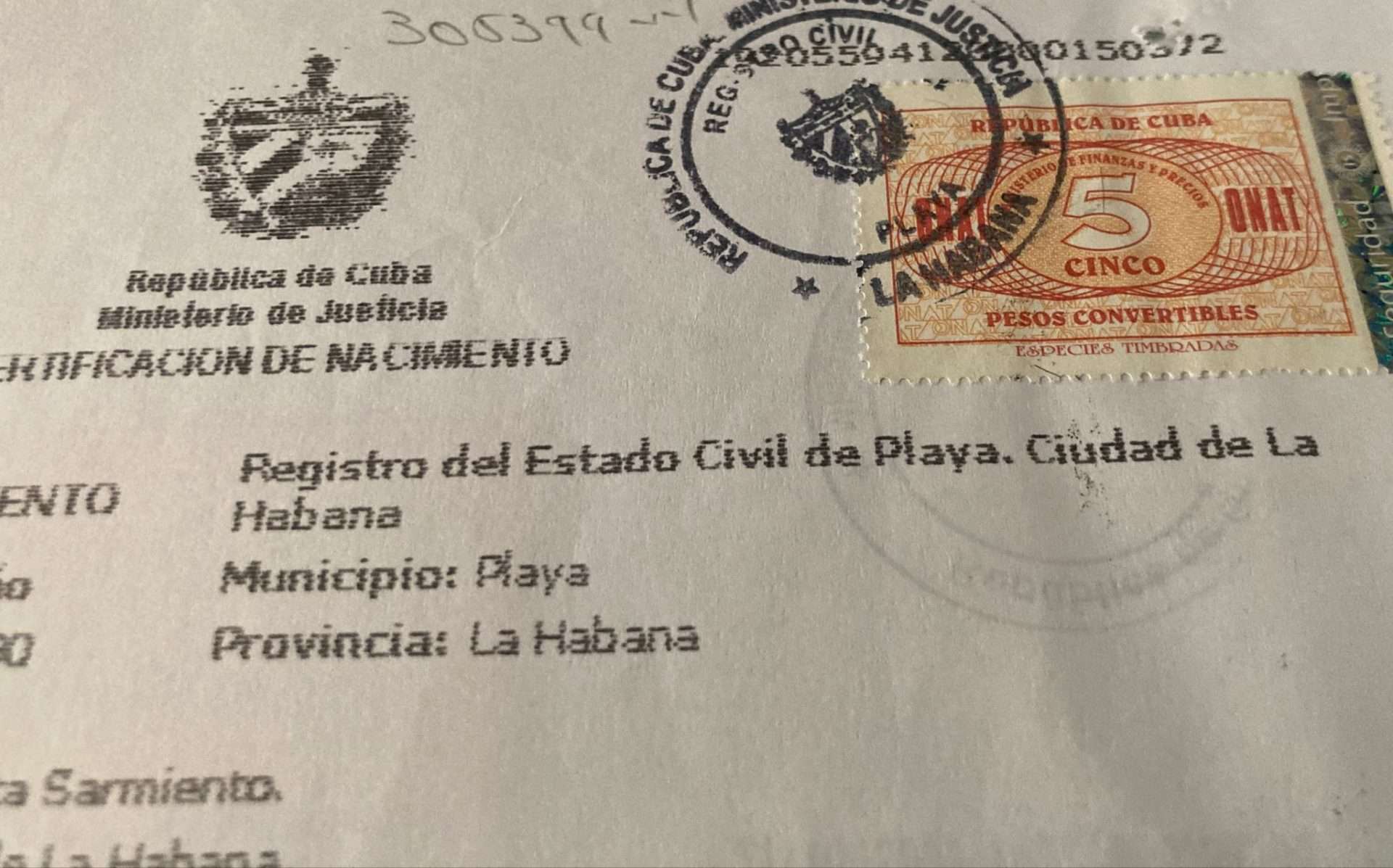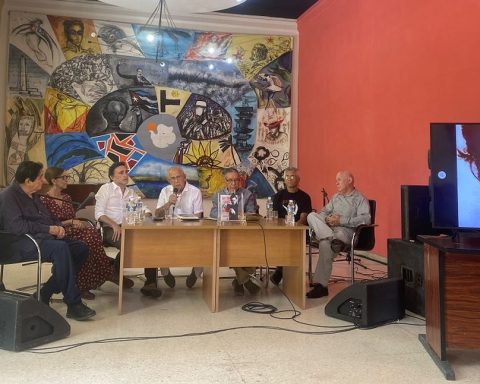The electronic payment of the tax to registration and notarial documents, recently approved for him Ministry of Justice (Minjus) of Cuba, it cannot be used in those required for procedures before consulates and embassies, official media reported on the island.
On December 22, the Minjus authorized, through its Resolution 685 of 2022the collection in cash or electronically of the tax on documents in notaries, property and commercial registries, and in the specialized law firms that it attends, due to the limited availability of stamps for sale.
Establishing electronic payment is part of the process of #DigitalTransformation that takes place in the system @CubaMinjus contributing both the improvement of the records and the computerization of the same. pic.twitter.com/6KMeKpY9Fa
— Ministry of Justice of the Republic of Cuba. (@CubaMinjus) December 28, 2022
However, the coordinator of Computerization of that body, Francisco García Enríquez, explained that the measure is national in scope, specifically for notarial and registry procedures, according to a note published on the official website Cubadebate.
In the case of procedures that require documents to “take effect outside the national territory (which must be presented at consulates and embassies), the accreditation of the payment of the stamp and the placement of the physical stamp will continue to be required,” added the official.
García Enríquez clarified to the outlet that the new way to pay the tax on documents cannot be used in these procedures “because there has not been a positive response” from the diplomatic representations, although “work is being done in that regard.”
In the press conference held to clarify this and other issues related to the new measure, it emerged that Transfermóvil was selected to collect this type of tax, a national electronic commerce platform with more than 3.84 million users and that manages around of 75 million monthly operations.
For this, the application incorporated in its latest update (V.1.221220) the function to acquire 24 denominations (from 5 to 5,000 Cuban pesos) of these stamps, and will be used in notarial offices, registries and specialized law firms of Minjus by users. (which they will be able to pay on their devices). In the case of Correos de Cuba, it will be linked to another platform.
In turn, it was learned that if people pay the tax through Transfermóvil, they can accredit it at the Minjus processing offices. In the event that they do not have the physical stamp and have not paid electronically, they will also receive the service, because the tax will be added to the billing of the procedure.
It was also explained that in the case of Post Office of Cubacitizens will be able to acquire digital series that will identify each stamp denomination, indicates the publication.
According to Líber Labrada Suárez, Director of Marketing and Business of this Business Group, work began with eight basic denominations, which will increase to 27 in the digital version. “26 procedures that are carried out in the Minjus offices that can use this service modality have been identified,” he was quoted as saying by Cubadebate.
The specialist stressed the importance of the identity card to complete these processes, since the digital series of stamps are linked to that document and announced that Correos de Cuba began this Wednesday to offer the electronic payment service of the tax on documents as of Wednesday 28 from December.
The post offices in the country will issue a receipt of the purchase operation in which will be the denominations of stamps purchased.
In the case of the passport application (tax of 2,500 pesos), which cannot be used for payment by Transfermovil because it is a procedure associated with the Ministry of the Interior, it was clarified that the applicant could acquire a single digital series with that value, and not several stamps of different denominations.
Julio Antonio García Tápaga, director of Electronic Commerce of the Cuban Telecommunications Company SA (Etecsa) explained to the press that Transfermóvil will be linked to the Bulevar Mi Transfer web platform.
“The Cuban Post Office system creates a digital seal within Transfermóvil, its platform connects to our platform and the tax is generated through digital payment, from there the process begins,” said García Tápaga.
In turn, it was reported that users who pay the tax on documents using the Transfermóvil platform will receive a 3% discount on the value of the transaction.
On other points, Nelson Plutin Santos, director of Central Records of the Ministry of Justice, pointed out that the document tax payment process is not reversible and that the stamp acquired in this way does not expire.
However, in the event that a mistake is made at the Minjus offices, or if the client decides not to use a copy of the requested document, the official has 24 hours to reverse the process and return the stamp.
Although one of the purposes of the new variant is to provide Cuban citizens with another way so that they can continue managing the payment of taxes on documents, the officials made it clear that they will follow the plans established for the printing and sale of stamps.


















